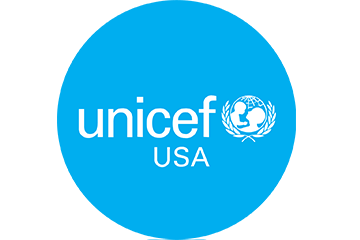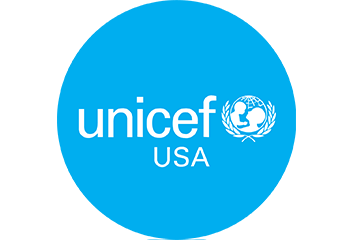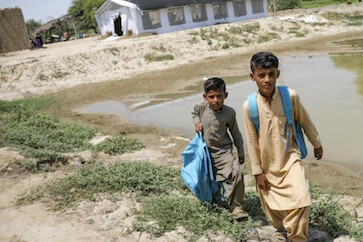More than 1.5 million children are at increased risk of waterborne diseases, drowning and malnutrition due to extensive flooding in northeastern Bangladesh.
Over 4 million people in five districts — Sylhet, Sunamganj, Habiganj, Netrokona and Maulvibazar — are affected by the flooding. Agricultural land and critical infrastructure, including schools and power stations, have been submerged.
“The damage to lives, homes and schools is heartbreaking,” said Sheldon Yett, UNICEF Representative to Bangladesh. “In this disaster, as in most others, children are the most vulnerable. UNICEF is on the ground to protect children and to meet their urgent needs, supporting the Government and working closely with our local partners.”
“I’ve been waiting for the relief effort. Every time I hear the sound of the boat engine, I think we are saved,” said Marjana Khatun, above, of Sylhet. Although the rain has stopped for now, the water has not receded and her family is still trapped at home in the flood.
Ten-year-old Ashraful’s home in Sylhet is underwater now. “We have no savings to repair the house so we are going to stay at our relative’s house,” he said. “I’m helping my family move by rowing things on my boat, but I’m frightened by the snakes.”
On May 23, families crowded onto a dry strip of road as they fled their flooded homes in Sunamganj. Sylhet and Sunamganj have been most affected by the flooding. Cases of diarrhea, respiratory infection and skin diseases have already been reported. At least three children have died after being struck by lightning.
Hundreds of schools have been closed, jeopardizing the education of the region’s children. Above, girls wade through floodwaters on the way to school in Sunamganj on May 23.
“I haven’t been to school in the last week. I help my mother around the shelter and play with my friends,” said 8-year-old Saida, who has been staying at a flood shelter in Sunamganj with her little sister Saiba, mother and father for the past six days.
“We couldn’t save anything when the flood came,” said Sajid Ali, Saiba’s father. They have not been able to obtain any food till now, other than the ration from the shelter — a kilogram of dried rice, bananas and oral saline solution.
Seven-year-old Sihab’s entire village was flooded in the heavy rainfall; it’s still underwater. His family is sheltering in a school building. With his mother Shilpi sick from a recent illness, Sihab has been helping her cook.
“I’ve only eaten dried rice with milk today because there are six of us and not enough rations for all of us,” he said.
UNICEF is supporting the Government of Bangladesh’s flood response by supplying safe water, hygiene kits, therapeutic foods and learning kits. UNICEF also works closely with the Department of Social Services to ensure that social workers stand ready to protect the safety and security of children. Raising awareness about drowning prevention in communities is at the center of the response.
When emergencies hit, UNICEF is there to help children in need. Your contribution can make a difference. Please donate today.
Top photo: Protiva’s school in Sylhet closed due to heavy flooding across northeastern Bangladesh. “I’m helping my father make fishing nets, but I miss my school and my friends,” she says. All photos © Parvez Ahmad Rony for UNICEF





